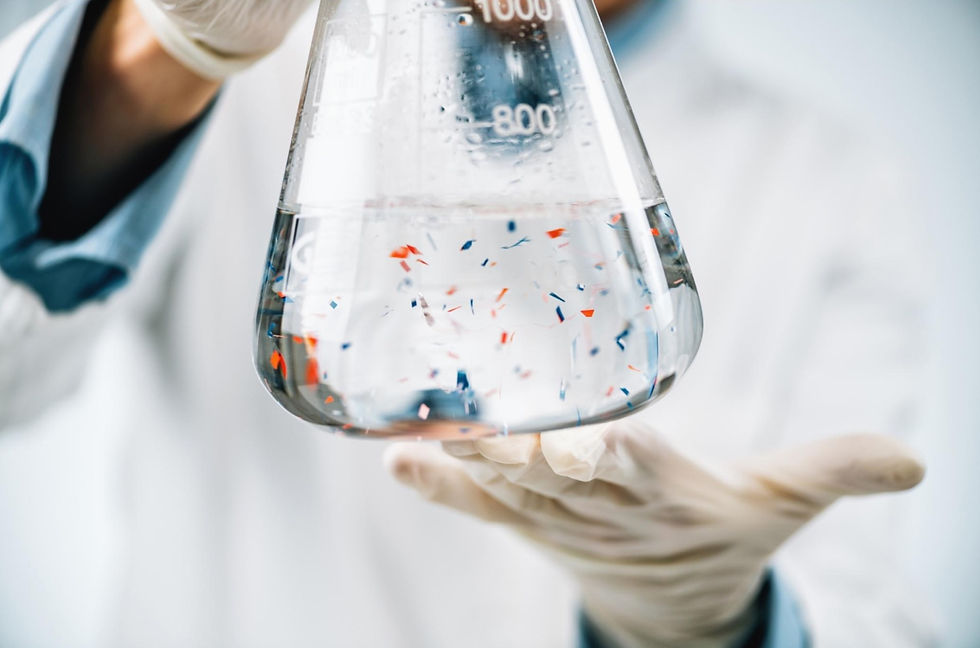Filtering microplastics from wastewater with plants.
- Sep 13, 2022
- 2 min read
Updated: Nov 21, 2022

American researchers have discovered that slimy plants like okra can remove microplastics from water as effectively as the chemicals usually used, that poses a real health problem.

As their name suggests, microplastics are pieces of 5 millimeters or less.
They come from the immense quantity of plastic produced since the 1950s, estimated at some 8 billion tons, of which only 10% has been recycled.

The rest has been spread all over the world, on all continents, in the oceans, in the air, in food and even inside the human body, as many studies have shown.
Microplastics are usually removed from wastewater in a two-step process: those that float to the surface are retained, and then chemicals called flocculants are used to agglomerate the rest into more filterable clumps. But these flocculants, like polyacrylamide, can break down into other toxic substances.

So researchers at Tarleton State University investigated whether readily available plants such as okra, aloe vera, cacti, fenugreek, tamarind or psyllium could replace these flocculants.
One such plant, okra, is a common cooking staple used as a thickener in many recipes, including West Indian, Louisiana and South Asian recipes.
In a previous report, Rajani Srinivasan, the chemistry professor in charge of the study, had already revealed that the viscous texture of okra allowed the elimination of textile micropollutants contained in water and also acted in the treatment of harmful microorganisms.
In this new study, the American researchers proved that the components of okra also work for microplastics.
Polysaccharides, natural compounds from okra and other plants, work effectively when combined.
The team realized during their experiments that the okra-tamarind duo was very effective in filtering fresh water, while the combination of okra and fenugreek was rather effective in seawater.

This natural solution works equally well in small containers of wastewater, as well as in large volumes of water such as oceans.
This natural and healthy discovery is a great step forward in eliminating micro plastics from our environment and thus promoting access to clean water around the world.


